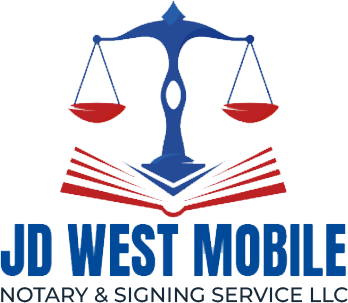In the realm of personal finance, loans are a common tool used by individuals to achieve various financial goals, from purchasing a home to funding education or consolidating debt. However, the process of obtaining a loan involves more than just approval and receiving funds. It includes a crucial step known as loan signing, which is pivotal for both borrowers and lenders to ensure clarity, legality, and understanding of the financial agreement.
This comprehensive guide will delve into the intricacies of loan signings, covering everything borrowers in the US need to know to navigate this important stage confidently.

What is a Loan Signing?
A loan signing refers to the final step in the loan process where the borrower formally agrees to the terms and conditions of the loan agreement. This typically occurs in the presence of a notary public or loan signing agent who verifies the identities of the parties involved and ensures that all necessary loan documents are signed correctly. The loan signing is a critical moment as it legally binds the borrower to repay the loan according to the specified terms, including interest rates, repayment schedule, and any associated fees.
Types of Loans That Require Signing
- Mortgage Loans: When purchasing a home, borrowers engage in a mortgage loan signing to finalize the purchase agreement with the lender. This involves signing documents such as the promissory note, deed of trust or mortgage, and other disclosures related to the loan terms and conditions.
- Auto Loans: Borrowers signing an auto loan agree to the terms set by the lender for financing a vehicle purchase. This includes signing documents related to the loan amount, interest rate, repayment schedule, and any conditions regarding vehicle ownership.
- Personal Loans: For personal financial needs such as debt consolidation, home improvements, or emergency expenses, borrowers sign agreements detailing the loan amount, interest rate, repayment terms, and any applicable fees.
Key Documents Involved in Loan Signings
- Promissory Note: This document outlines the borrower’s promise to repay the loan, including details of the loan amount, interest rate, repayment schedule, and consequences of default.
- Deed of Trust or Mortgage: Specifically for mortgage loans, this document pledges the property as collateral for the loan, giving the lender the right to foreclose if the borrower defaults.
- Loan Estimate and Closing Disclosure: These loan documents provide detailed information about the loan terms, including estimated costs, fees, and the total amount due at closing. They ensure transparency in lending practices and help borrowers compare different loan offers.
- Truth in Lending Act (TILA) Disclosure: Mandated by federal law, this disclosure outlines the costs of borrowing, including the annual percentage rate (APR), finance charges, and total payments over the life of the loan.
Importance of Understanding Loan Documents
Understanding the documents involved in a loan signing is crucial for borrowers to make informed decisions and protect their financial interests. Here’s why:
- Legal Obligation: Signing loan documents creates a legally binding contract between the borrower and lender. Understanding the terms prevents misunderstandings and ensures compliance with repayment obligations.
- Financial Implications: Awareness of interest rates, fees, and repayment schedules helps borrowers budget effectively and avoid financial strain or default.
- Consumer Protection: Regulations such as the Truth in Lending Act (TILA) and Real Estate Settlement Procedures Act (RESPA) mandate transparency in lending practices, empowering borrowers with the right to receive accurate and complete information about their loans.
Steps Involved in a Loan Signing Process
- Preparation: Borrowers receive loan documents in advance to review terms and seek clarification on any questions before the signing appointment.
- Verification: During the signing, a notary public or loan signing agent verifies the identities of the parties involved and ensures all documents are correctly signed and dated.
- Documentation: Both parties receive copies of signed documents, which serve as proof of the loan agreement and its terms.
- Post-Signing: Borrowers should retain copies of all signed documents for their records and monitor loan statements to ensure accuracy in terms of payments and balances.
Benefits of Professional Loan Signing Services
Engaging a qualified notary public or loan signing agent offers several advantages:
- Accuracy: Ensures all documents are correctly signed, reducing the risk of errors or omissions.
- Convenience: Provides a convenient location and time for signing, accommodating both borrowers and lenders.
- Expertise: Offers guidance and explanation of complex loan terms to ensure borrowers understand their obligations fully.
Conclusion
Loan signings are pivotal moments in the borrowing process, where borrowers formally commit to repayment terms outlined by the lender. Understanding the documents involved, the legal implications, and seeking professional guidance ensures borrowers make informed decisions aligned with their financial goals. By comprehensively reviewing and understanding loan terms before signing, borrowers empower themselves to manage their finances responsibly and protect their long-term financial well-being.
For borrowers in the US, navigating the loan signing process with clarity and confidence is essential. By understanding the nuances of loan agreements and seeking professional guidance when needed, borrowers can effectively manage their financial obligations and achieve their desired financial outcomes.
FAQs
Why is it important to review loan documents before signing?
Understanding loan documents helps borrowers know their obligations, including interest rates, fees, and repayment terms, to avoid future financial challenges.
What should I bring to a loan signing appointment?
Bring a government-issued ID and any requested documentation, and prepare questions about the loan terms for clarification.
What happens if I don't understand something in the loan documents?
It’s crucial to seek clarification from the lender or a trusted advisor before signing. Understanding the terms ensures you can make informed decisions about your financial commitments.
Ready to navigate your loan signing confidently?
Contact us today for expert guidance and ensure you understand every detail of your loan agreement before you sign.
